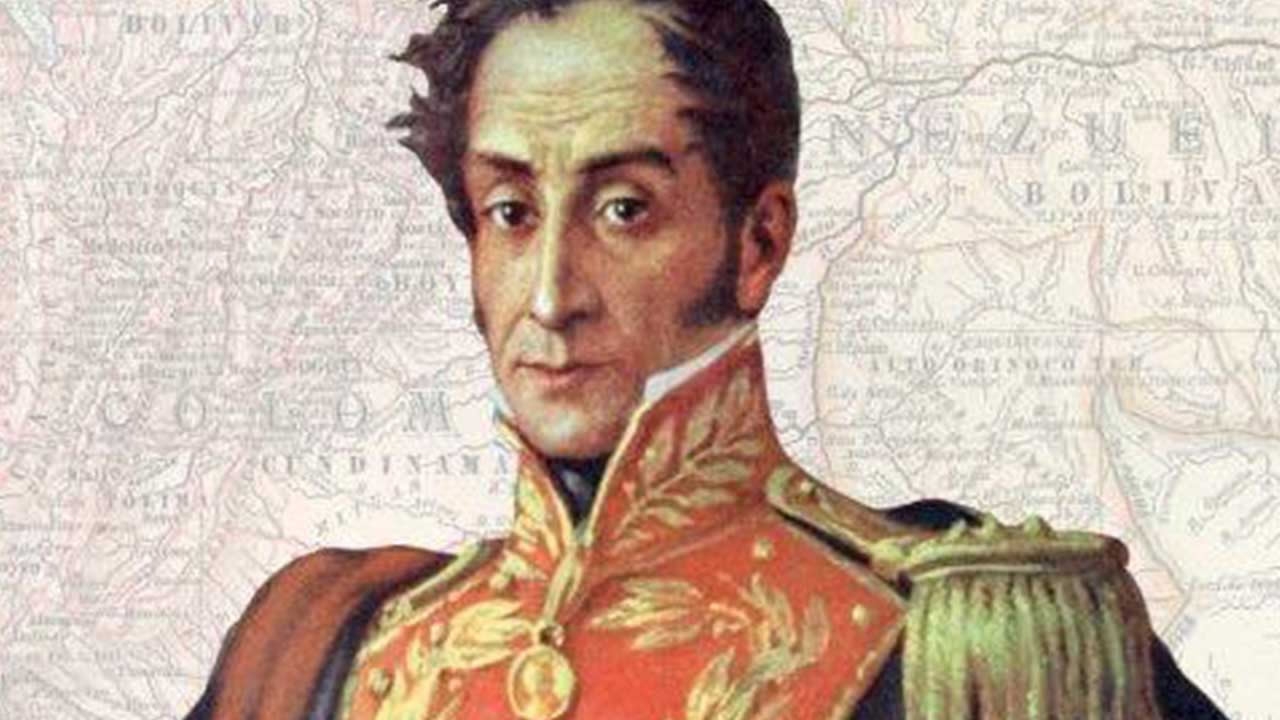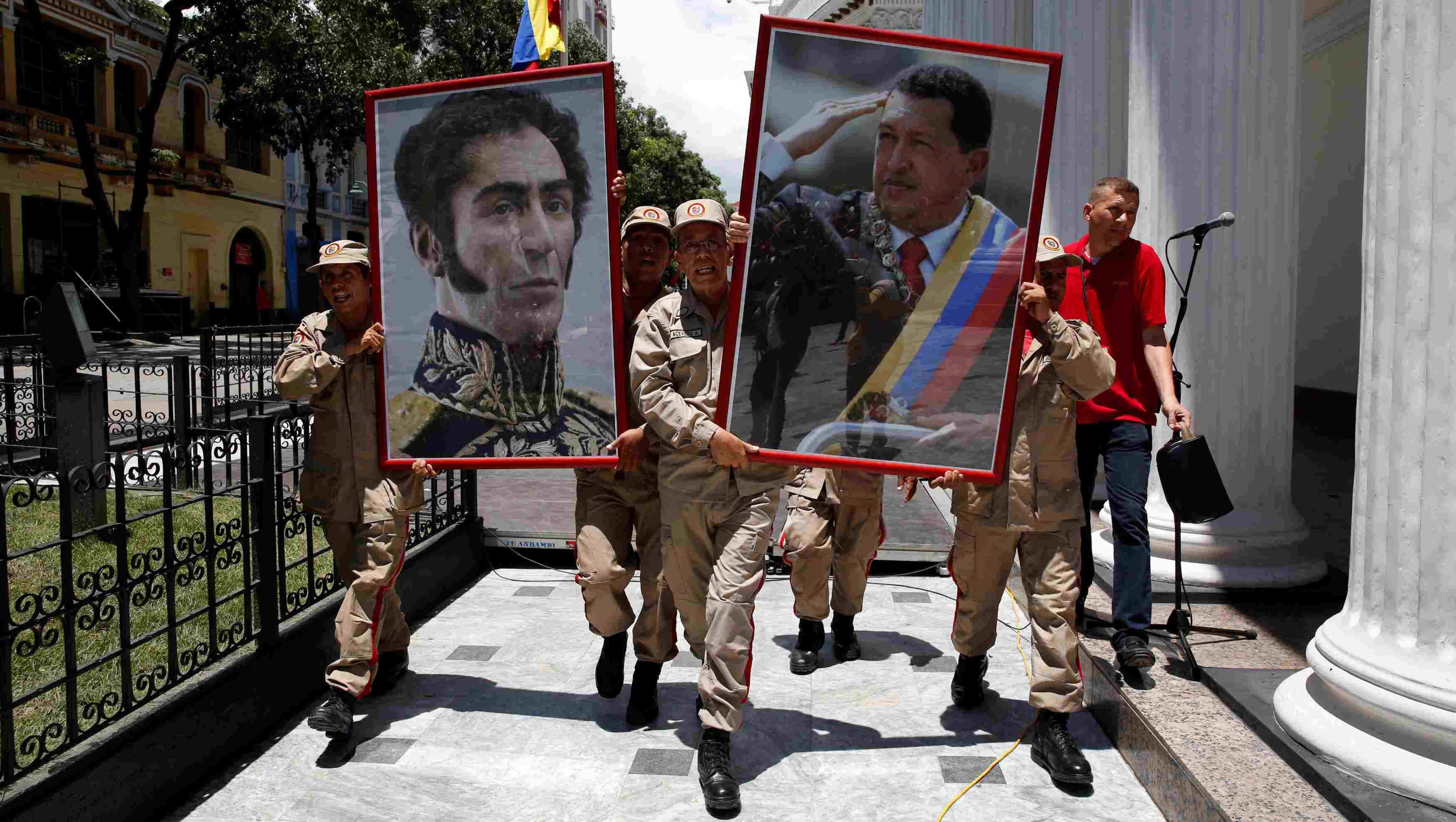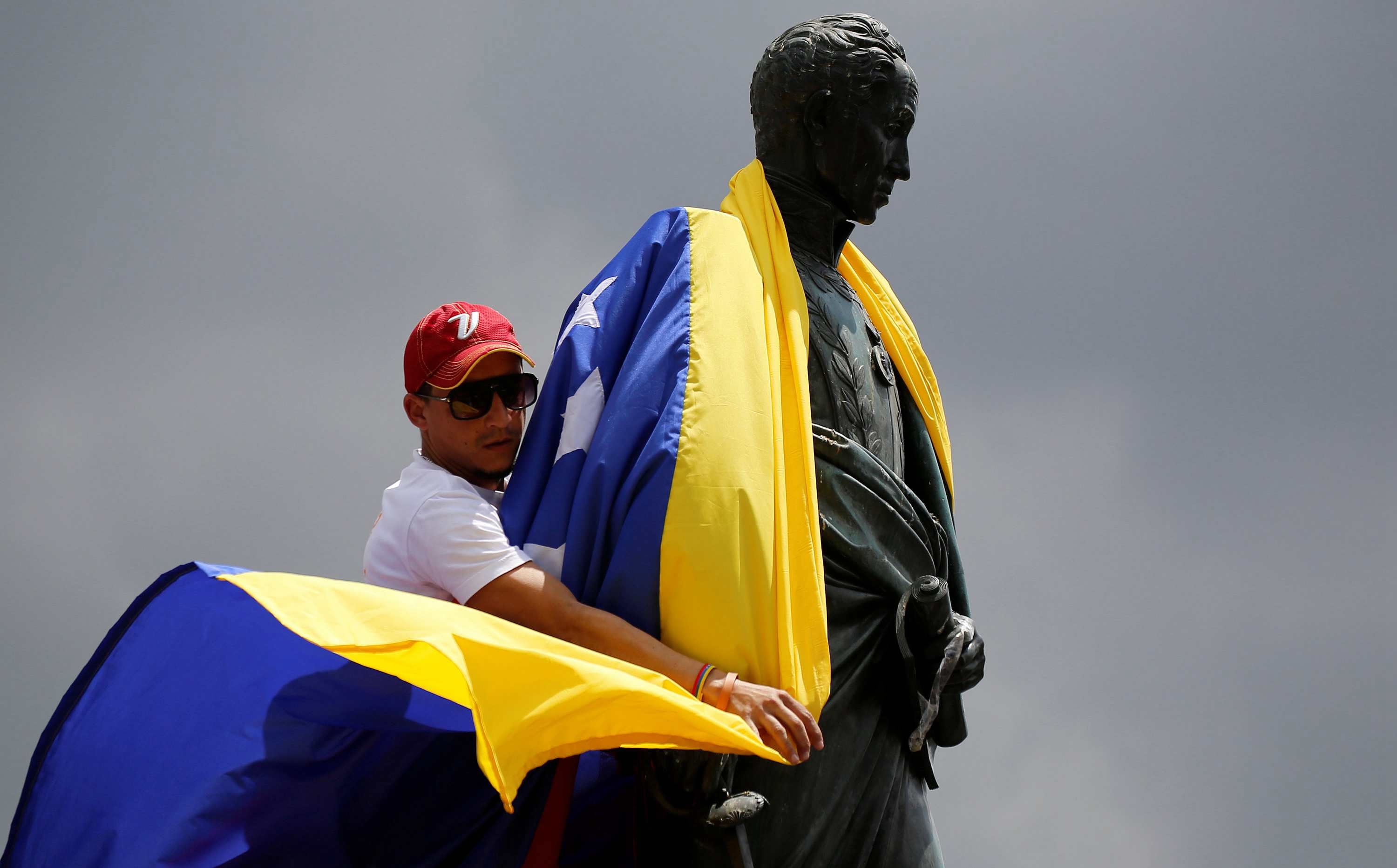
Politics
09:34, 08-Aug-2017
Legacy of Venezuela's independence hero, Simon Bolivar now in dispute

By CGTN's Stephen Gibbs
Simon Bolivar, an independence hero of Venezuela, has a country, a currency, and even a satellite named after him. Memories of him have been long seen almost everywhere.
Nearly every town has a square named after him, and even the country’s now declining coins have long been called "Bolivars". But today, in the country where he was born, the use of Bolivar’s name is now controversial.
Over the last 18 years, however, his image has grown even larger. Under Venezuela’s left wing government, Bolivar has gone from being ever present to nearly omnipresent.

Members of the militia carry images of Venezuela's late President Hugo Chavez and national hero Simon Bolivar outside of the Palacio Federal Legislativo in Caracas, Venezuela, Aug. 4, 2017. /Reuters Photo
Members of the militia carry images of Venezuela's late President Hugo Chavez and national hero Simon Bolivar outside of the Palacio Federal Legislativo in Caracas, Venezuela, Aug. 4, 2017. /Reuters Photo
Hugo Chavez called his leftist movement the "Bolivarian Revolution." In 1999, the country's official name became the Bolivarian Republic of Venezuela. The army is called the "Bolivarian armed forces." It’s constitution, the "Bolivarian constitution."
But why did Chavez choose this man – the son of a rich plantation owner – to be an icon of his socialist movement?
Inés Quintero, director of Venezuela's National History Academy, believes the answer is simple, Simon Bolivar was a ready-made hero.

A Venezuelan resident hangs a flag on the statue of Simon Bolivar in Bogota, Colombia, July 16, 2017. /Reuters Photo
A Venezuelan resident hangs a flag on the statue of Simon Bolivar in Bogota, Colombia, July 16, 2017. /Reuters Photo
“It is much easier to adopt an ideological movement which already exists, to make it a doctrine, than invent a new one,” according to Quintero.
Opposition supporters, however, have long been troubled by Chavismo’s adoption of Bolivar. They argue that if he were alive now, he would be a freedom fighter just as they are.
Quintero though says it’s always a mistake to cast historical figures in the present day.
“There are people with historical importance. That is indisputable,” Quintero says. “But you have to be profoundly careful to make sure that that historic significance is not transferred to a political situation that has nothing to do with the period in which that person lived.”
Nevertheless, the government of current President Nicolas Maduro is convinced that Bolivar would be on its side. When the US recently sanctioned 13 senior officials, the president awarded each of them with a replica of his sword. When the new constituent assembly was inaugurated, his portrait – alongside one of Chavez, of course – was brought along.
It’s easy to think Venezuela’s independence hero would be one thing that’s not controversial. Today, however, everything is in dispute.
14442km

SITEMAP
Copyright © 2018 CGTN. Beijing ICP prepared NO.16065310-3
Copyright © 2018 CGTN. Beijing ICP prepared NO.16065310-3